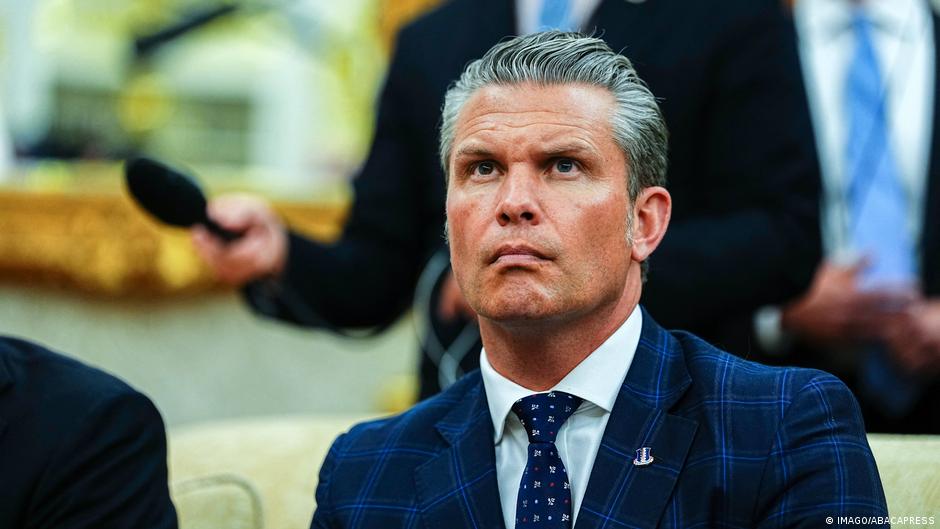
The United States announced this Thursday (November 13, 2025) that it will launch a new phase of its military offensive against drug trafficking, dubbed Operation Southern Spear, following the arrival of the world’s largest aircraft carrier USS Gerald Ford in the Caribbean.
“This mission is to protect our homeland, to rid the hemisphere of narco-terrorists, to protect our homeland from drugs that kill our people,” Secretary of Defense Pete Hegseth announced on the X Network.
“The Western Hemisphere is America’s neighbor, and we will protect it.”
Although the statement did not provide details on this new step, experts in Washington emphasized that the aircraft carrier, along with its escort flotilla, would significantly expand the United States’ military options in the region.
Secretary of State Marco Rubio declared Wednesday at the end of the G7 ministerial summit in Canada that Venezuela is “an illegitimate regime and basically a drug lord who has seized power.”
“But look, this is an anti-drug operation. And if they stop sending boats loaded with drugs, there will be no problem,” he added.
President Donald Trump himself was equivocal in a recent television interview, saying he had no intention of going to war against Caracas.
But later, when asked if he thought President Nicolas Maduro’s time in office was numbered, he replied: “I do.”
The aircraft carrier Gerald Ford, along with its adjacent convoy, joins six ships already in the Caribbean and one in the Pacific.
At least 76 people have been killed in 20 attacks on ships believed to be transporting drugs. President Trump has suggested that the CIA may already be operating in the region and that preparations for a ground attack are imminent.
President Trump’s motto was and still is “America First,” recalls Alexander B. Gray, CEO of American Global Strategies.
And in the case of drug trafficking, the goal is above all to stop the flow of drugs from the South.
“Venezuela is part of a larger competition between great powers around the world, given its relations with China and Russia,” he explained this Thursday at a panel of experts organized by the Atlantic Council in Washington.
“And what[President Trump]is saying is that before we can succeed globally, we have to succeed in our region, in our hemisphere,” he added.
“From a national leadership perspective, we intend to maintain this (deployment) for as long as humanely possible until we achieve the objective they seek, which is to disrupt drug trafficking into the United States,” he said.
peaceful transition
Douglas Farrar, president of IBI Consultancy, a drug trafficking and security expert, explained to AFP that any attack on Venezuelan soil should be considered with the potential for collateral damage.
In the expert’s opinion, when choosing a target, “Puerto Cabello could be a possible candidate.” Experts say the port is Venezuela’s most important and a transit point for drugs.
But he warned: “I think it will be very difficult to find important targets that could significantly change the balance of power in Venezuela if we decide to bomb.”
If this destabilization strategy seeks to overthrow the Maduro regime, “the goal should be a peaceful transition of power,” retired Gen. Laura J. Richardson, who served as commander of Southern Command from 2021 to 2024, explained to the Atlantic Council.
To achieve this, maintaining dialogue with the Venezuelan military is essential, recalls Elliott Abrams, former special envoy to Venezuela (2019-2021).
“One of the things that the opposition should be saying, and we should be saying, is that Venezuela has a long border, there’s a lot of violence, and we need an army. And we hope that our CIA covert operations will do that,” he explained during the debate.
“They will not be disadvantaged by the transition. They will be happier,” he concluded.
mg (AFP, Telemundo)



